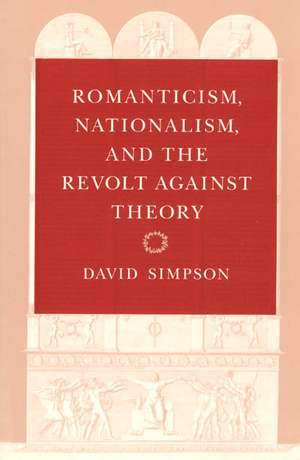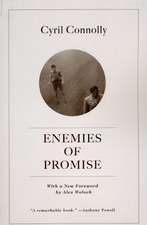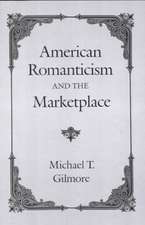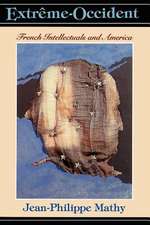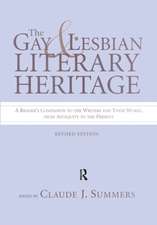Romanticism, Nationalism, and the Revolt against Theory
Autor Professor Emeritus David Simpsonen Limba Engleză Paperback – 28 feb 1993
Why has Anglo-American culture for so long regarded "theory" with intense suspicion? In this important contribution to the history of critical theory, David Simpson argues that a nationalist myth underlies contemporary attacks on theory. Theory's antagonists, Simpson shows, invoke the same criteria of common sense and national solidarity as did the British intellectuals who rebelled against "theory" and "method" during the French Revolution.
Simpson demonstrates the close association between "theory" and "method" and shows that by the mid-eighteenth century, "method" had acquired distinctly subversive associations in England. Attributed increasingly to the French and the Germans, "method" paradoxically evoked images both of inhuman rationality and unbridled sentimentality; in either incarnation, it was seen as a threat to what was claimed to be authentically British. Simpson develops these paradigms in relation to feminism, the gendering of Anglo-American culture, and the emergence of literature and literary criticism as antitheoretical discourses. He then looks at the Romantic poets' response to this confining ideology of the cultural role of literature. Finally, Simpson considers postmodern theory's claims for the radical energy of nonrational or antirationalist positions.
This is an essential book not only for students of the Romantic period and intellectual historians concerned with the idea of "method," but for anyone interested in the historical background of today's debates over the excesses and possibilities of "theory."
Simpson demonstrates the close association between "theory" and "method" and shows that by the mid-eighteenth century, "method" had acquired distinctly subversive associations in England. Attributed increasingly to the French and the Germans, "method" paradoxically evoked images both of inhuman rationality and unbridled sentimentality; in either incarnation, it was seen as a threat to what was claimed to be authentically British. Simpson develops these paradigms in relation to feminism, the gendering of Anglo-American culture, and the emergence of literature and literary criticism as antitheoretical discourses. He then looks at the Romantic poets' response to this confining ideology of the cultural role of literature. Finally, Simpson considers postmodern theory's claims for the radical energy of nonrational or antirationalist positions.
This is an essential book not only for students of the Romantic period and intellectual historians concerned with the idea of "method," but for anyone interested in the historical background of today's debates over the excesses and possibilities of "theory."
Preț: 287.83 lei
Nou
Puncte Express: 432
Preț estimativ în valută:
55.07€ • 57.66$ • 45.57£
55.07€ • 57.66$ • 45.57£
Carte tipărită la comandă
Livrare economică 07-21 aprilie
Preluare comenzi: 021 569.72.76
Specificații
ISBN-13: 9780226759463
ISBN-10: 0226759466
Pagini: 254
Dimensiuni: 152 x 229 x 18 mm
Greutate: 0.35 kg
Ediția:1
Editura: University of Chicago Press
Colecția University of Chicago Press
ISBN-10: 0226759466
Pagini: 254
Dimensiuni: 152 x 229 x 18 mm
Greutate: 0.35 kg
Ediția:1
Editura: University of Chicago Press
Colecția University of Chicago Press
Cuprins
Acknowledgments
Introduction: A History for Theory
1. The Politics of Method
Peter Ramus, Martyr
The Method of the English Revolution
John Wesley, Methodist
2. The Culture of British Common Sense
Us and Them
Sticking to the Facts
The Trials of Reason
Burke, Coleridge, and the Method of Nature
3. The Myth of French Excess
A Nation of Philosophers
System and Sensibility: Rousseau
4. The Image of Germany
Conspirators and Freemasons
Scandal on the Stage
The Derangements of Theory
5. Engendering Method
The Case for Female Reason
A Revolution among Women
6. System and Literature
The Sublime: A Masculine Confusion
The Place of English Literature
A Theory of Imprecision: Utilitarianism
7. A Radical Literature
Plotting the Middle Ground
The Wordsworth Question
The Struggle with Albion's Angels: William Blake
Eroticism and Futurity: Shelley and Keats
8. Thoughts on the Present Discontents
A Revolution That Will Not Finish
The Problem of Theory in the Postmodern
Notes
Bibliography
Index
Introduction: A History for Theory
1. The Politics of Method
Peter Ramus, Martyr
The Method of the English Revolution
John Wesley, Methodist
2. The Culture of British Common Sense
Us and Them
Sticking to the Facts
The Trials of Reason
Burke, Coleridge, and the Method of Nature
3. The Myth of French Excess
A Nation of Philosophers
System and Sensibility: Rousseau
4. The Image of Germany
Conspirators and Freemasons
Scandal on the Stage
The Derangements of Theory
5. Engendering Method
The Case for Female Reason
A Revolution among Women
6. System and Literature
The Sublime: A Masculine Confusion
The Place of English Literature
A Theory of Imprecision: Utilitarianism
7. A Radical Literature
Plotting the Middle Ground
The Wordsworth Question
The Struggle with Albion's Angels: William Blake
Eroticism and Futurity: Shelley and Keats
8. Thoughts on the Present Discontents
A Revolution That Will Not Finish
The Problem of Theory in the Postmodern
Notes
Bibliography
Index
